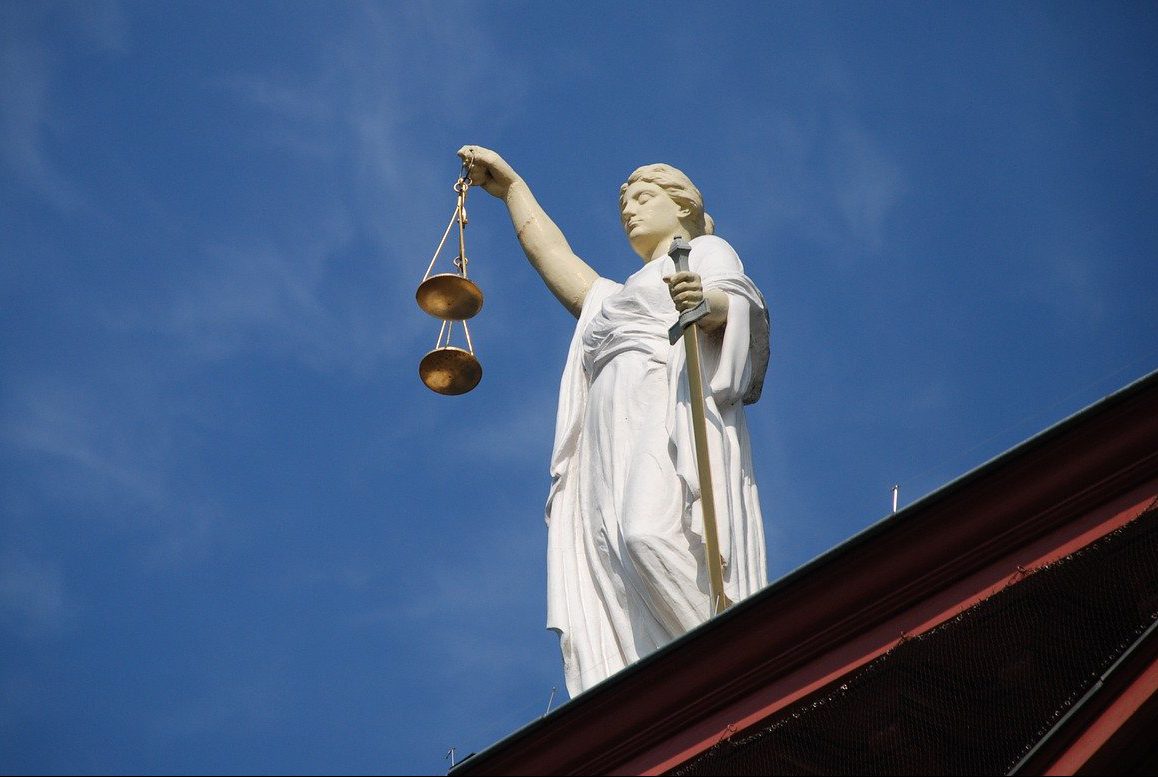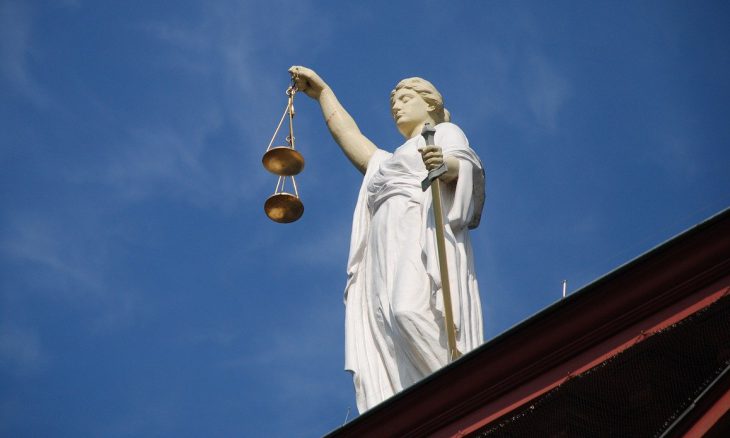Due Process and Equal Application Under Law

Section 1 of Amendment XIV to the Constitution states: “All persons born or naturalized in the United States and subject to the jurisdiction thereof, are citizens of the United States and of the State wherein they reside. No State shall make or enforce any law which shall abridge the privileges or immunities of citizens of the United States; nor shall any State deprive any person of life, liberty, or property, without due process of law; nor deny to any person within its jurisdiction the equal protection of the laws.”
The Due Process Clause of the Fourteenth Amendment is similar to the provision in the Fifth Amendment which only restricts the federal government. It states that no person shall be “deprived of life, liberty or property without due process of law.” The Sixth Amendment guarantees the rights of criminal defendants, including the right to a public trial without unnecessary delay. It includes the right to a lawyer, the right to an impartial jury, and the right to know who your accusers are and the nature of charges and evidence against you.
Generally, “due process” refers to fair procedures. However, the Supreme Court has also used this part of the Fourteenth Amendment to prohibit certain practices outright. For example, the Court has ruled that the Due Process Clause protects rights that are not specifically listed in the Constitution, such as the right to privacy in some circumstances.
The promise of this amendment is that all persons in the U.S. shall enjoy “equal protection of the laws.” This means that they cannot be discriminated against without good reason. All laws discriminate because governments must make choices about what is lawful. For example, a law against robbery discriminates against robbers.
The law also applies to illegal immigrants in certain cases. The Supreme Court struck down a Texas law that prohibited children who were not legal residents to attend free public schools. The Court held that the “Texas statute imposes a lifetime hardship on a discrete class of children not accountable for their disabling status” (Plyler v. Doe, 1982).
The right to due process, enshrined in the Constitution, includes the right to a speedy trial by a jury of one’s peers. Those denied bail or unable to afford it can often be incarcerated for months awaiting trial, during which time they often lose their jobs, face eviction, and have their lives spiral downward… all before ever being convicted of a crime.
In America today, there are divisions when it comes to the applications of the Fifth, Fourteenth, and Sixth Amendments. For many months during 2020, America witnessed nightly protests that included arson, violence, and even murder. The protests resulted in at least 25 deaths, thousands of injured law enforcement officers, and nearly $2 billion in damage to the nation’s cities. The Minnesota Freedom Fund bailed out a woman charged with murder for stabbing her friend to death as well as a twice-convicted rapist charged with kidnapping and sexual assault.
On January 6, 2021, demonstrators breached the Capitol Building in Washington, D.C., seeking to keep Congress from counting electoral college votes to finalize the election in favor of Joe Biden. Approximately 640 people have been charged with entering or remaining in a restricted federal building or ground. Over 75 were charged with entering a restricted area with a dangerous or deadly weapon, and more than 45 have been charged with destruction of government property. Thirty were charged with theft of government property.
As of August 30, 2022, more than 900 people have been charged, 376 people have pleaded guilty, and the FBI continues to identify people who were present. There are a number who are still sitting in D.C. jails, awaiting their “speedy” trials. They describe the environment there as a pressure cooker. One inmate described the situation as “too many rats together in a small cage for too long.” There is no “Freedom Fund” bailing out these defendants, and even if there were, some people are being held without bail in the D.C. jail.
Eight defendants have faced jurors on felony charges. All of them have been convicted. Two defendants opted to waive their right to a jury trial and had a bench trial instead. They were acquitted.
Prosecutors estimate that more than 2,000 people actually entered the Capitol unlawfully that day, which means hundreds more arrests are likely in the months to come. In March, federal prosecutors admitted to losing track of defendants, while attorneys for many of the defendants are saying the Justice Department has violated their rights under the Speedy Trial Clause. A U.S. magistrate judge says the Justice Department is overwhelmed by the work required to pursue criminal cases against the defendants. “The government has chosen to charge the largest case ever,” the judge said, noting he was formerly a prosecutor in the same U.S. Attorney’s Office leading the investigation. “If they do not have the resources to do it, they ought not do that. … It feels like the government has bitten off more than it can chew here.”
God is righteous and does not tolerate wrongdoing. He is also fair in His judgments and directs that you should be also. “Do you not know that the saints will judge the world? And if the world is to be judged by you, are you incompetent to try trivial cases?” (1 Corinthians 6:2).
How then should we pray?
- For law enforcement, prosecutors, and judges to apply the law and justice equally.
- That due process would be given to every person charged with a crime, regardless of whether or not it is of a political nature.
- For those who have been incarcerated for long periods without bail or a date set for their trials.
- For those in Congress on the committee that is considering the events of January 6.
- For the Lord to work out His purpose and plan for the United States.





